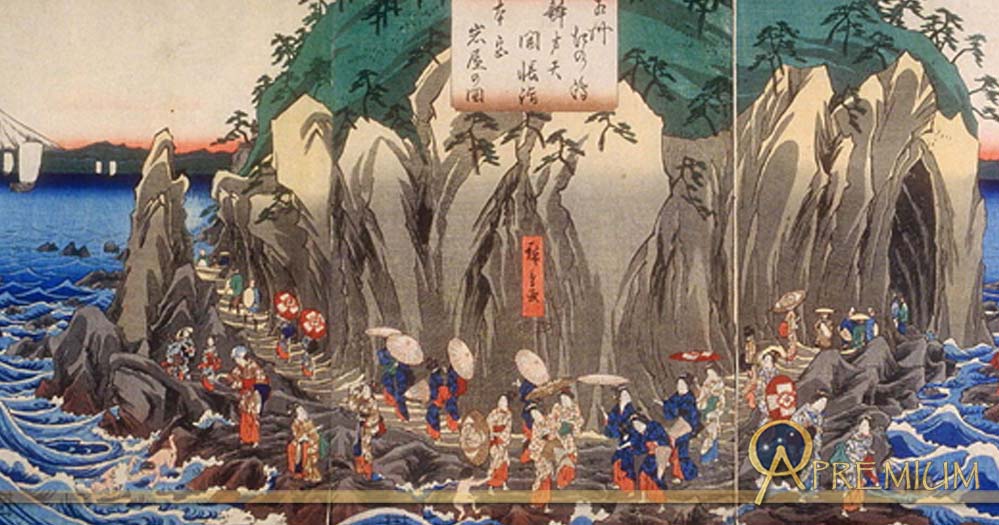Benzaiten, Japanese War Goddess Transformed into Water Goddess of Music
Benzaiten is one of Japan's most complex and popular syncretic deities who has long ago been conflated and associated with other divinities from the Hindu, Buddhist, and Japanese pantheons. Her many forms range from a two-armed beauty playing music to an eight-armed martial deity holding weapons and a divine representation of the supreme Shinto sun goddess, Amaterasu. Benzaiten is also an agricultural deity invoked for rain and harvests. This patronage earns her a place as one of the shichifukujin (‘Seven Gods of Fortune’) which includes Ebisu (patron of fishermen as well as the god of prosperity and wealth in business), Daikokuten (patron of cooks, farmers and bankers as well as the god of commerce and prosperity), Bishamonten (patron of warriors and the god of fortune in battles), Fukurokuju (patron of chess players and the hermit god of wisdom, luck, wealth and happiness), Jurojin (the cheerful god of longevity), Hotei (patron of children and barmen as well as god of popularity), and Benzaiten herself who serves as the patron of warriors, artists, writers, dancers and geisha.

Benzaiten (Goddess of Music and Good Fortune) Seated on a White Dragon (CC0)
Although a quick glance of some of Benzaiten’s aspects, such as her role as protectress of a city and her relationship with culture, may remind people of ancient Greece’s goddess of wisdom Athena, Benzaiten’s character is very closely based on the Indian goddess Sarasvati, who is celebrated both as a river and a goddess. The tradition of Sarasvati or Benzaiten as water goddess has not been lost in Japan as thousands of Benzaiten’s places of worship are often located near water - the sea, a lake, a pond or a river. Philologist Sir William Jones describes Sarasvati also as the goddess of eloquence, learning and writing - in short, of culture. She is adored as the patroness of the fine arts, especially of music and rhetoric, as well as the inventor of the Sanskrit Ianguage and of the sciences which writing perpetuates. The seven notes in music, an artful combination of which constitutes music and variously affects the passions, are also believed to be her earliest creation.

Benzaiten Stele (Enoshima Shrine) (CC BY-SA 3.0)
Benzaiten, the Eloquent Goddess Protector of the City
The history of Japan’s city of Enoshima began when the Buddhist monk Kokei (977 – 1049 AD), a priest of the dominant Tendai sect in the mid-Heian period, wrote a tale in Chinese letters in 1047 AD
Like this Preview and want to read on? You can! JOIN US THERE ( with easy, instant access ) and see what you’re missing!! All Premium articles are available in full, with immediate access.
For the price of a cup of coffee, you get this and all the other great benefits at Ancient Origins Premium. And - each time you support AO Premium, you support independent thought and writing.
Martini Fisher is a Mythographer and author of many books, including "Time Maps: Matriarchy and the Goddess Culture” | Check out MartiniFisher.com
Top Image: Hiroshige Ando, Pilgrimage to the Cave Shrine of Benzaiten, (circa 1850) Sammai-tsuzuki, triptych. (Public Domain)

















